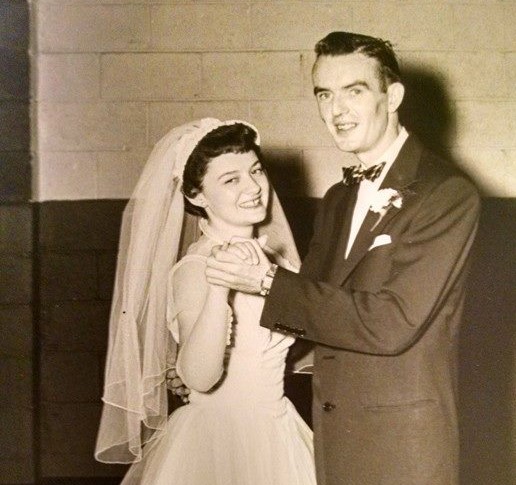Podcast: Play in new window | Download
My dad was born to Irish immigrants in 1928, the year the stock market crashed. The Depression lasted a full decade, plus. And think about this: During that decade, while his father drove for the Detroit Street Railway, his mother had five more children. Can we even imagine this today? (We tell the pollsters that almost nobody is better off than they were 10 years ago, and everyone feels economically insecure.)
My Dad’s life was marked by great joy in their Eastside Detroit home, and he and his siblings continued to share joy (as well as some deep sorrows), as they got older and had children of their own. Dad served in the Korean War as a medic and saw combat that traumatized him. But in those days you just moved on. He did.

He and my mom had 8 kids of their own (one of whom, “baby John,” Dad’s namesake, they buried, a victim of SIDS). My dad and mom willed that we would go to and graduate college. And both sacrificed enormously to make that happen.
As I reflect on this Father’s Day past, I’m humbled when I put myself up against my dad. He hoped for great external accomplishments for me and all my siblings. Yet his example was not one spent in the cloud of possibilities but on the hard terrain of daily love and sacrifice.
The truly authentic leaders do their best work closest to home, and in home, I think – in places where their straight talk fools no one, if their walk is crooked or halting.
Maybe we should take another day, to thank the dads, as well as moms, quiet teachers, big brothers and sisters, aunts and uncles, foster parents, coaches and moderators, who kept it real and
led with their best self.

A truly humbling experience would be one in which you’ve been forced to admit your wrong, or if you performed more poorly than you had anticipated. This means that losing, falling short, and making major mistakes are the true humblers (not winning or being acknowledged for something great).